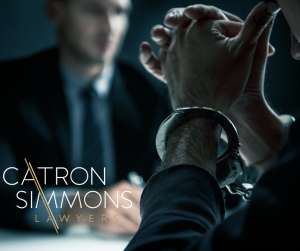An AVO or Apprehended Domestic/Personal Violence Order is an order from Police and/or the courts prohibiting certain behaviour with the aim of to protecting the Person in Need of Protection (PINOP).
AVO’s in New South Wales are governed by the Crimes (Domestic and Personal) Violence Act 2007. Apprehended Violence Orders can be made for the protection of another person if that person (or a police officer) fears violence, intimidation, harassment or stalking by another person. Those fears must be reasonable and that the conduct being alleged warrants the making of a court order.
Apprehended Violence Orders can be accompanied with criminal offences, such as assault, intimidation, or damage to property.
There are two types of AVO’s
- Apprehended domestic Violence Order (ADVO) – Where the people involved are related such as wife/husband or an intimate relationship, sister/brother, cousins.
- Apprehended Personal Violence Order (APVO) – Where there is no intimate relationship or the parties are not related. Typically persons that are known to each other like neighbours, friends etc.
Conditions of an Apprehended Violence Order (AVO)
Mandatory Order:-
- The defendant must not do any of the following to <protected people>, or anyone <she/he/they> <has/have> a domestic relationship with:
A) assault or threaten <her/him/them>,
B) stalk, harass or intimidate <her/him/them>, and
C) deliberately or recklessly destroy or damage anything that belongs to <protected people>.
Additional Orders:-
Additional orders can be sought depending on the circumstances, for example:
Restrictions put in place against the Defendant:
- No longer allowed to reside at the family home
- Not allowed to contact the protected person except through the use of a lawyer,
- Not allowed within a certain distance from the protected person/s residence, work or school.
- Not allowed to be in the company of protected person for at least 12 hours after taking alcohol or drugs.
- Not allowed to possess any firearms or prohibited weapons.
- Not allowed to try and locate the Protected Person.
What are my options when served with an AVO?
There are a few options from here, each with pros and con and you should obtain legal advice before taking the next step. Generally these are the options:
-
Consent to the order
You can consent to the order as in its current terms that the Police have asked for, generally the Police request the AVO is in place for two years.
It is critical that you understand there are a number of ramifications to consent to an order including, working with children checks, work and firearms orders.
The test for making such an order is that the court must be satisfied on the balance of probabilities that a person has reasonable grounds to fear and in fact fears:
- the commission by the other person of a domestic violence offence against the person, or
- the engagement of the other person in conduct in which the other person:
- intimidates the person, or
- stalks the person,
being conduct that, in the opinion of the court, is sufficient to warrant the making of the order.
It is important to understand that an Apprehended Violence Order by itself is not a criminal matter and does not result in a criminal conviction, however, a breach of any order is a serious criminal offence with a maximum penalty of 2 years imprisonment and/or 50 penalty unit fine. Orders themselves can also have significant impacts upon your personal and professional life.
What happens in court with an AVO?
Attending Court
When attending the courthouse you need to sign into the court with the court officer. You will also have to speak with the Domestic Violence Liaison Officer (DVLO) for the Police station that is responsible. If you are legally represented then your lawyer will talk to the officer.
If you are consenting to the order you can tell the officer and they will give you a form to sign, which will go to the magistrate. You should expect to be there most of the day, however, magistrates to tend to get consenting orders and people out of the way in the morning so be in the court and wait for your matter to be heard.
If you are defending the matter a statement timetable will be set for the service of materials by the prosecution and the defence.
You can also ask for adjournment or more time to obtain legal advice, the court may adjournment the matter typically for two weeks.
The next date is a compliance check / mention at court to ensure that the matter is still moving forward and the statements have been served. A hearing date will then be set.
 Hearing Date
Hearing Date
At the hearing date, the police or applicant is required to put forth their case. Your court date is set but it is important to understand that the APVO matter is one of likely a number of hearings to proceed that day and may not be the first matter dealt with.
Those with solicitors typically take priority. If your matter is not reached on the day a further hearing date is set and your matter should be given priority on the next occasion.
Court proceedings are very formal and you should ensure that you dress and act in an appropriate manner. All court proceedings are subject to a number of pieces of legislation such as the Evidence Act 1995 (NSW). There are a number of rules to evidence before it is admitted by the court, it is not the case that you can say or do anything that you see relevant.
See our article “tips for attending court”.
Consequences for any breach of an AVO

The maximum penalty for contravene an Apprehended Violence Order is a maximum fine of $5, 5000 (50 penalty units) and/or two years imprisonment.
How can Catron Simmons Lawyers Help me?
We can advise you how to resolve your dispute to ensure the best outcome for you. We can advise you of your rights, answer any legal questions you have and help negotiate an outcome. We can prepare letters, documents and any required applications on your behalf. We represent you and your interests at court ensuring that your application has the best chance of success.
Most importantly when it comes to an AVO Catron Simmons Lawyers have extensive experience in both prosecuting and defending such applications. We will be able to tell you very quickly if you have a case and prepare and present that case in the best possible manner.
Contact Catron Simmons Lawyers on 9836 1327 or 0407 171 626.

 Hearing Date
Hearing Date